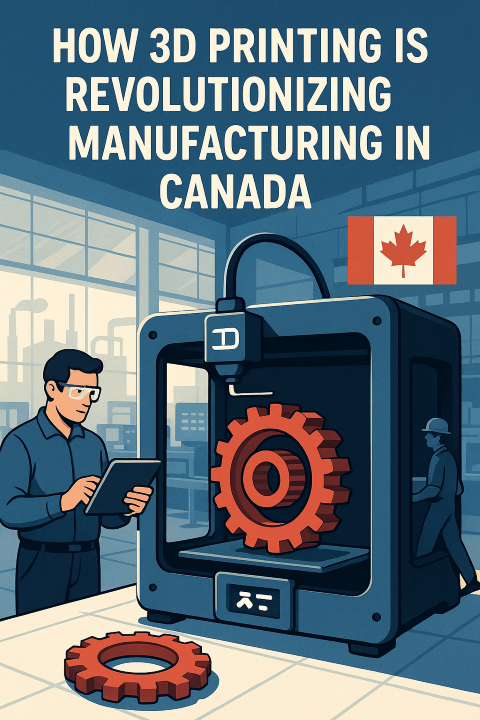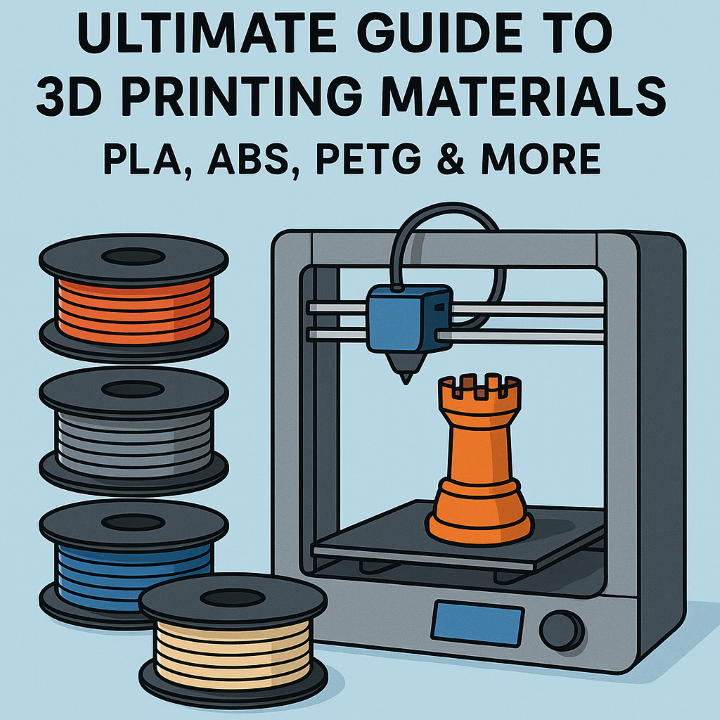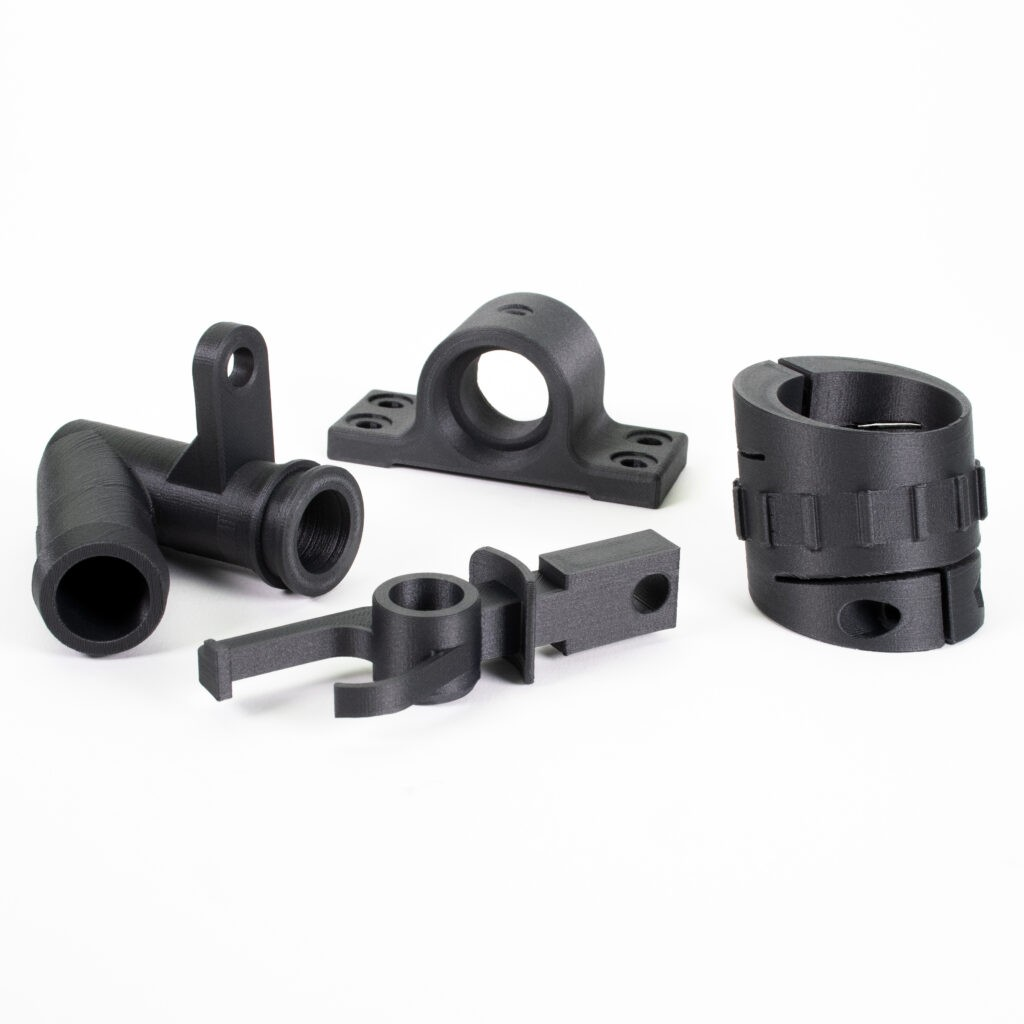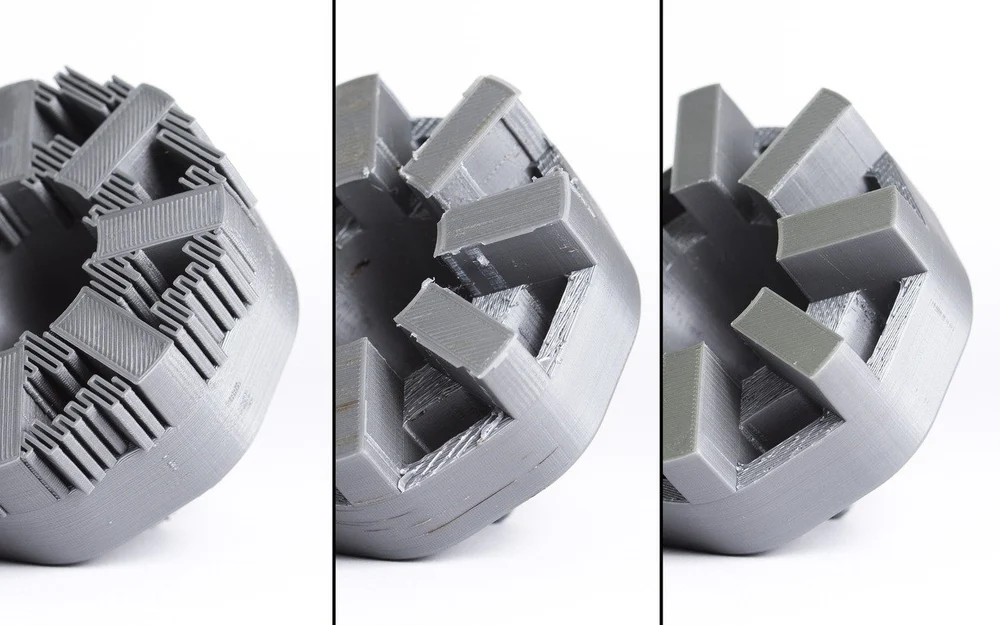Your cart is currently empty!
Engineering-Grade Materials – PC, Nylon, and TPU
PC (Polycarbonate) Applications: Structural components, electronics housings, aerospaceAdvantages: High tensile strength, heat resistance up to 120°C, excellent impact resistanceLimitations: Requires high-temperature extrusion (>250°C), warps without an enclosure PC is favored for its exceptional strength-to-weight ratio and ability to withstand extreme conditions. It requires precise temperature control during printing to prevent layer separation. Nylon (Polyamide) Applications:…
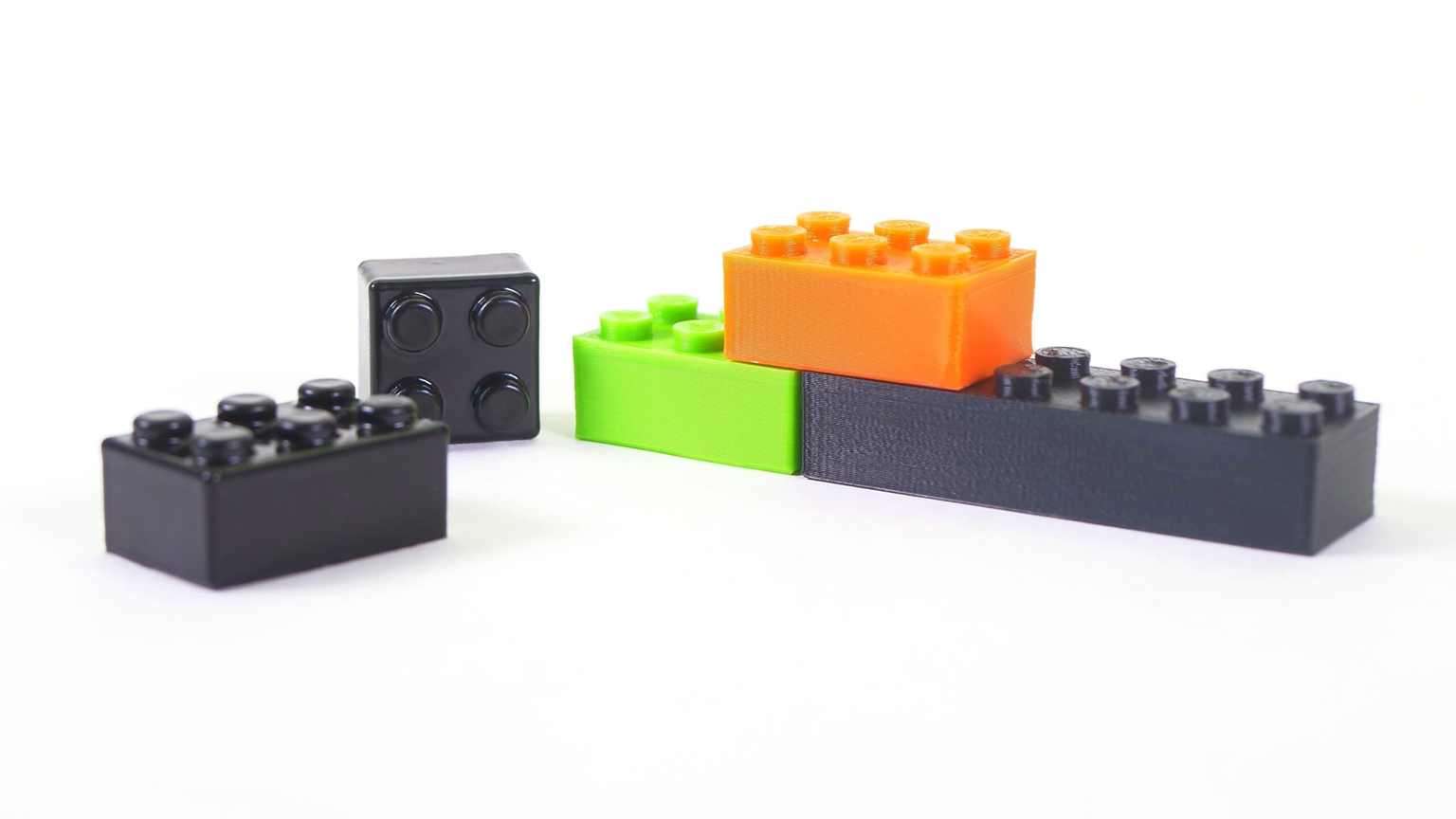
PC (Polycarbonate)
Applications: Structural components, electronics housings, aerospace
Advantages: High tensile strength, heat resistance up to 120°C, excellent impact resistance
Limitations: Requires high-temperature extrusion (>250°C), warps without an enclosure
PC is favored for its exceptional strength-to-weight ratio and ability to withstand extreme conditions. It requires precise temperature control during printing to prevent layer separation.
Nylon (Polyamide)
Applications: Gears, bearings, hinges, functional mechanical parts
Advantages: High toughness, wear resistance, flexibility
Limitations: Hygroscopic (requires dry storage), difficult adhesion to print bed
Nylon offers superior durability and elasticity, making it suitable for high-load applications. It prints at 240-270°C and benefits from adhesion aids such as heated beds and glue sticks.
TPU (Thermoplastic Polyurethane)
Applications: Seals, gaskets, medical prosthetics, flexible enclosures
Advantages: High elasticity, chemical resistance, impact absorption
Limitations: Requires direct-drive extruder, slow print speeds necessary
TPU is a flexible elastomer known for its ability to withstand deformation. It is commonly used in applications requiring soft, shock-absorbing properties.
Share with
/

